'They are killing civilians house to house': Crowded UN camp filled with horror stories
Inside a tent city where more than 40,000 people have sought refuge from South Sudan's civil war
It looks like something out of a science fiction film: a post-apocalyptic hell that is both prison and sanctuary rolled into one.
The people who live inside the dry and dusty labyrinth of scarecrow tents sometimes hang their laundry out on the barbed wire that rings the camp and is punctuated by guard towers manned by soldiers from the United NationsMission in South Sudan, or UNMISS.
It's what's known as a "protection of civilians" siteand lies in the old slave-traders city of Wau, capital of the northwestern state of the same name.
More than 40,000 people have sought refuge here from a brutal civil war increasingly described as tribal or ethnic in nature.
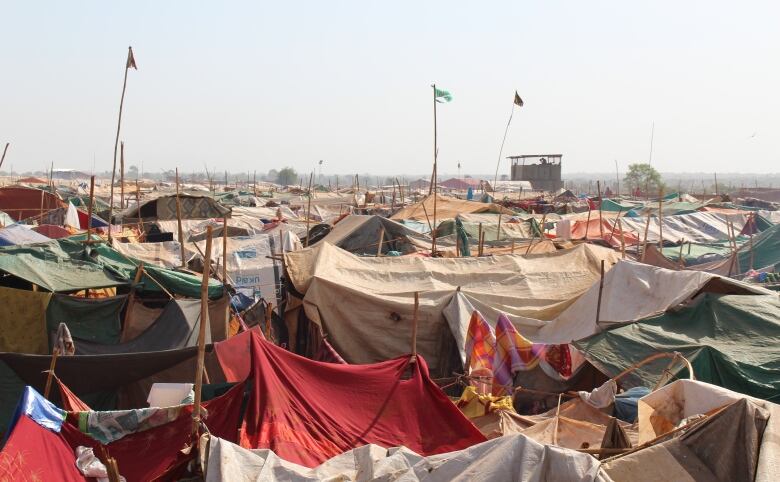
"What is for sure [is] there are many people who have been killed because of their ethnic affiliation or along ethnic lines," said EugeneNindorera, the top UN human rights official on the ground in South Sudan.
Originally from Burundi, he fears where the conflict may be headed.
"I think based on my own experience, I'm always afraid how a population can be manipulated," he said, "especially on these ethnic issues."
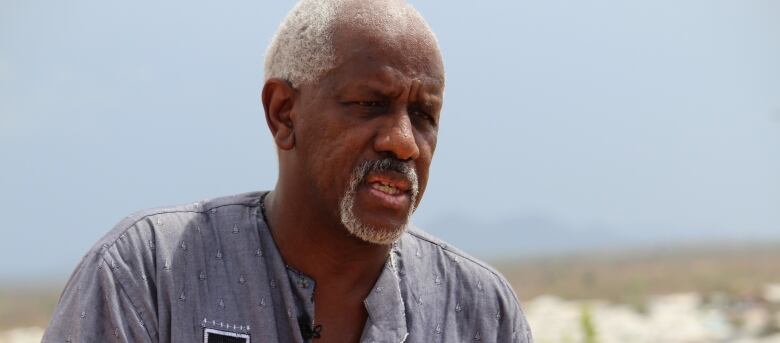
Nindorera, who is based in the capital Juba, travelled northwest to Wau on a fact-finding mission in mid-April after reports that mainly Dinka government soldiers were carrying out revenge attacks against civilians from other tribes after a rebel ambush.
Angelina Michael, 27, was a picture of angry defiance as she described her brother's final moments after soldiers in government uniforms burst into their family homenear Wau.
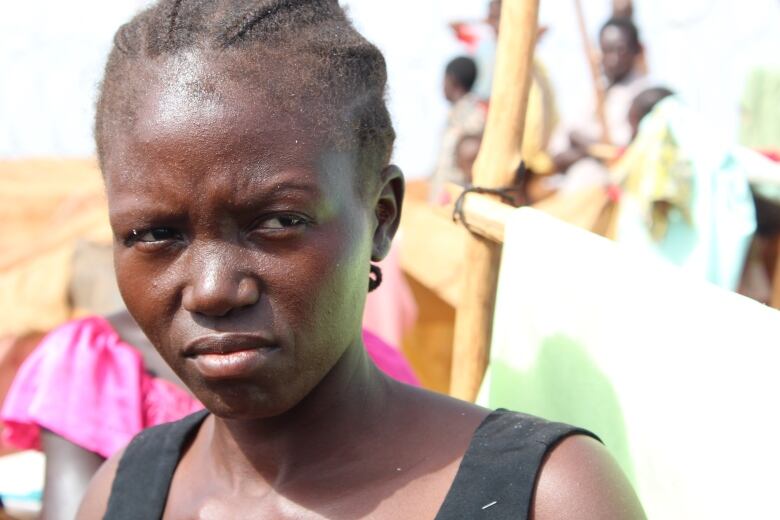
Michael says they confronted her brother as he came out of the shower and demanded money.When he said he didn't have any, they accused him of supporting the rebels and shot him.She and her four children escaped, leaving his body in the house.
"If it weren't for the kids, I would have gone back," she said."Even if it meant dying."
'Killing civilians house to house'
You can hear similar stories all across the camp, just by lifting up tent flaps and lending an ear.
Urbana Wol rushed back from Juba when he heard the news of the attack on Wau and its surrounding areaand immediately moved his family, including his wife and newborn son,from their village into the POC camp.
"They say we are supporting rebels," he said. "That is why they are killing civilians house to house."
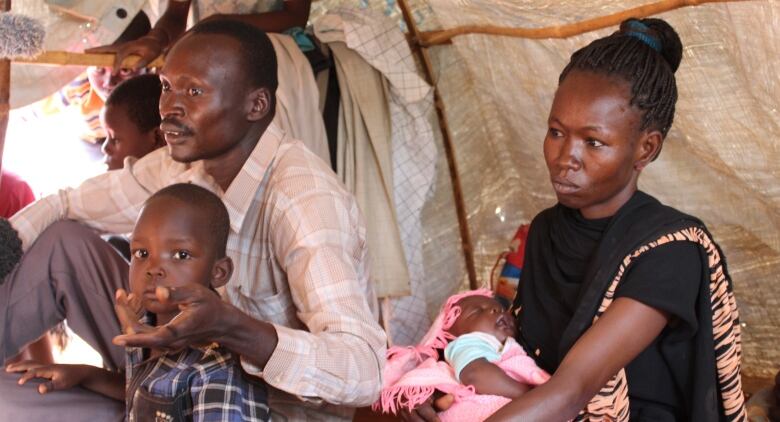
Thousands of frightened people have also taken refuge on the grounds of the Catholic cathedral in Wau, the biggest in all of South Sudan.
The women here fear venturing outside the church grounds even to try to make it to the POC camp down the road.
"Children are being killed, women are being raped and men are being shot," said a woman on the church grounds.
South Sudan has become a nation of divided families and lost souls in its nearly six years of existence, with people blown across its hot, flat plains by war, cruelty and now, growing hunger.
The UN's Food and Agriculture Organization estimates about half of South Sudan's population, roughly five million people, isat risk because of a lack of food security.
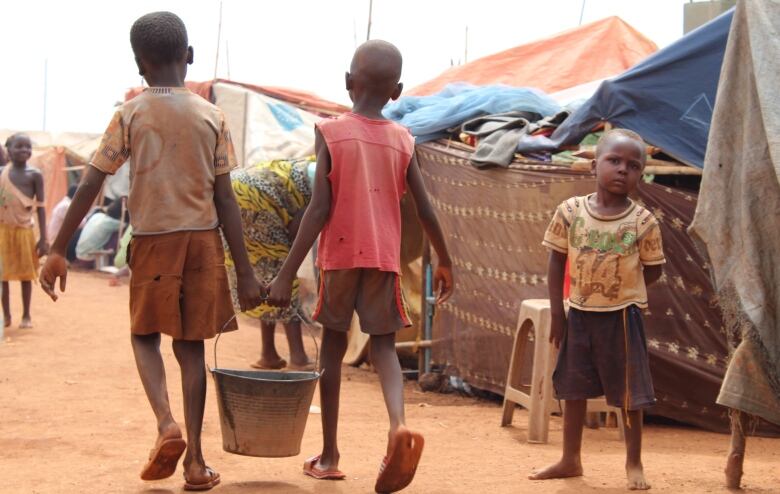
The first POC camp was created back in 2013 after President Salva Kiir accused his vice-president, Riek Machar, of plotting a coup against him.
The country quickly descended into civil war and people sought out UN bases for protection.
Atrocities 'committed by both sides'
Since then, the conflict has been increasingly driven along ethnic lines, mainly pitting Kiir's Dinka tribe against Machar's Nuer.
- South Sudanese trapped by war, famine grow increasingly desperate
- In famine-ravaged South Sudan, people eat weeds to survive
Nindorera says atrocities are being committed by both sides, but that the government bears greater responsibility because of its position.
"According to us, the majority of the violations have been committed by the government forces," he said.
The government flatly denies it. In an interview, Kiirspokesman Ateny Wek Ateny denounced the people of the POC camp in Wau as liars who want to immigrate to the West and accused Western journalists of writing their stories without leaving their hotel rooms.
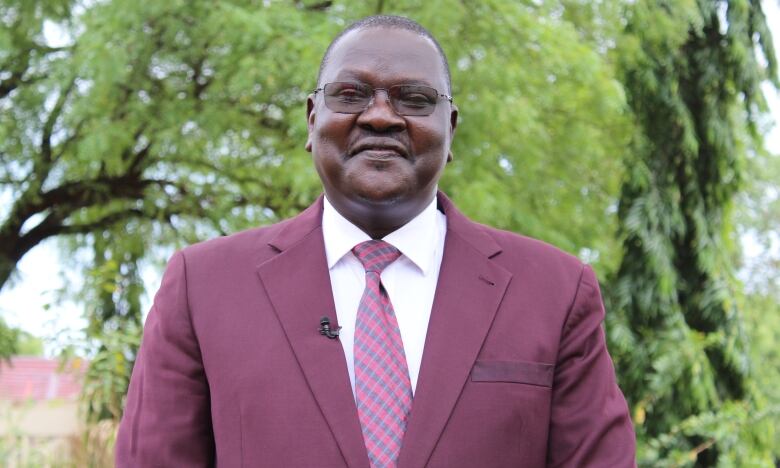
He also insisted the conflict has not become ethnic in nature.
"It will take an ethnic dimension if this government collapses," he warned. "Very clearly. Because this government is a government of national unity."
The POC camps would seem a rebuttal of that.So frightened are the temporary residents of what goes on outside their flimsy defences that the camps are in danger of becoming permanent fixtures.
And in the words of Eugene Nindorera, they can't all be lying.
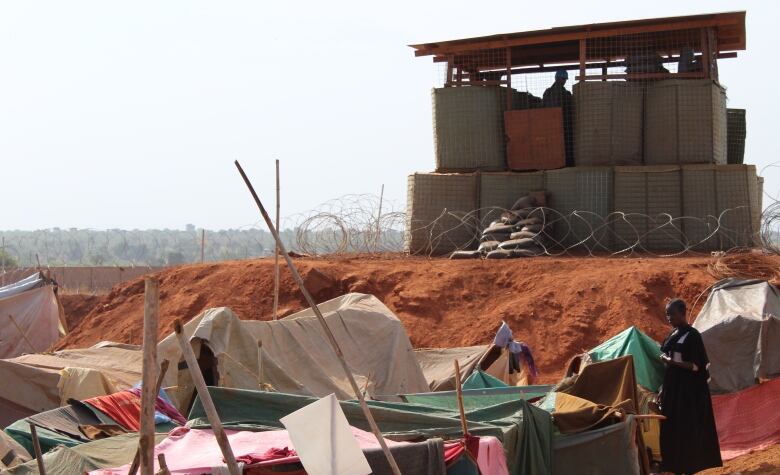












_(720p).jpg)


 OFFICIAL HD MUSIC VIDEO.jpg)
.jpg)



























































































